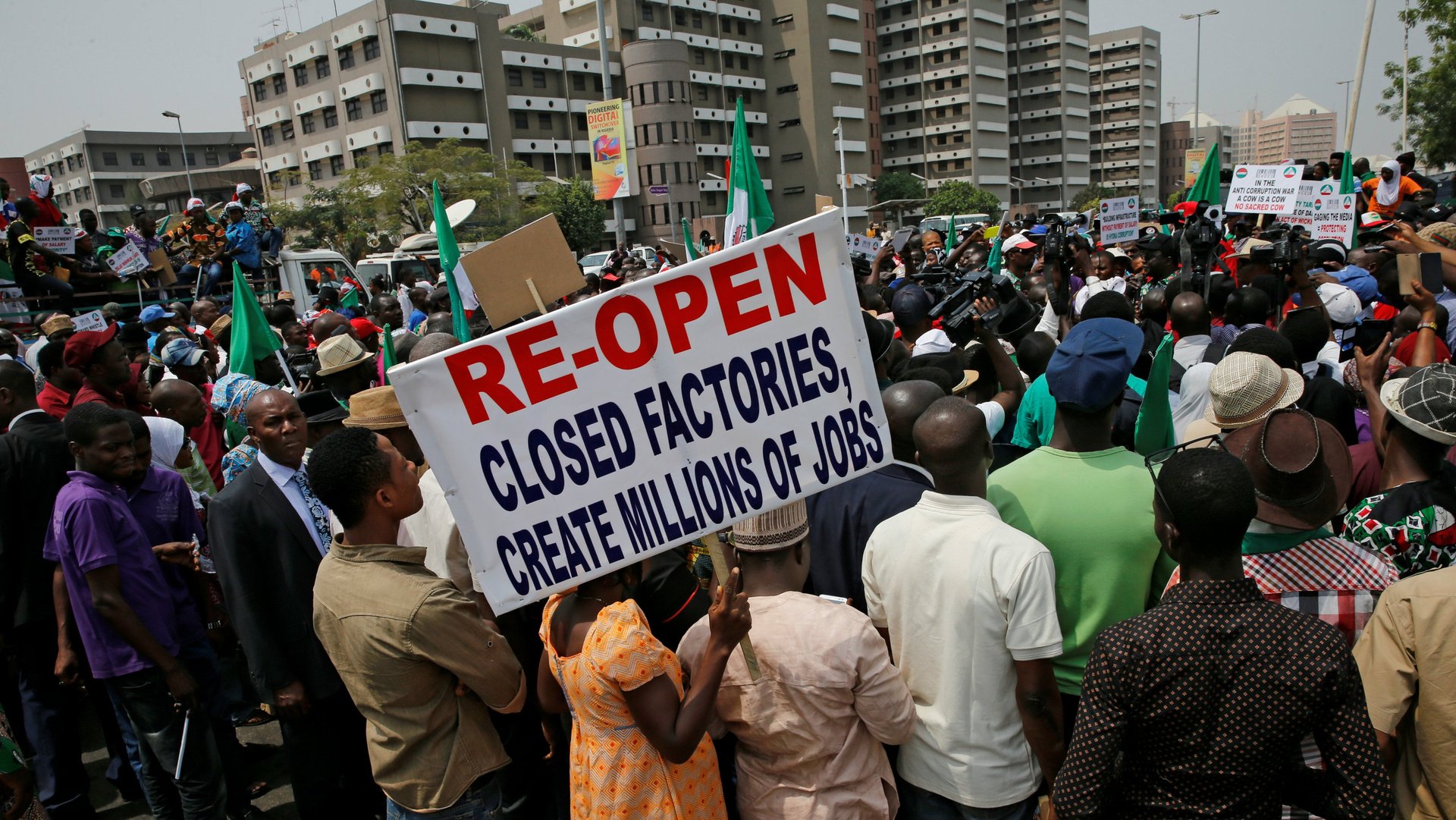A brief story of the quick unraveling of one of the world’s most promising economies
For the first time in 25 years, Nigeria’s economy has suffered a full year of negative growth, shrinking by 1.5%, according to new data from the country’s National Bureau of Statistics (NBS).


For the first time in 25 years, Nigeria’s economy has suffered a full year of negative growth, shrinking by 1.5%, according to new data from the country’s National Bureau of Statistics (NBS).
Often cited in recent years as one of the world’s most promising economies, Nigeria has seen a rapid reversal of fortune.
NBS pegs the contraction to a series of factors, including reduced foreign earnings and an uptick in militancy and pipeline vandalism in Nigeria’s oil-rich south. In mid-2016, militancy briefly resumed in the oil-producing region, with attacks on key oil installations causing production to fall to 20-year lows. As a result, Nigeria’s foreign earnings and reserves were particularly hit at a time when the economy struggled with recession.
In 2017, Nigeria will be hinging its economic growth on a fragile peace pact with militants, in the hopes of boosting production and earnings. Analysts also advocate for relaxed currency controls to shore up investor confidence in an economy starved of foreign exchange.
Nigeria’s government has recently kicked off a 60-day plan to improve its business climate. The first move is relaxing entry visa rules to make it easier for foreigners to do business in the country.